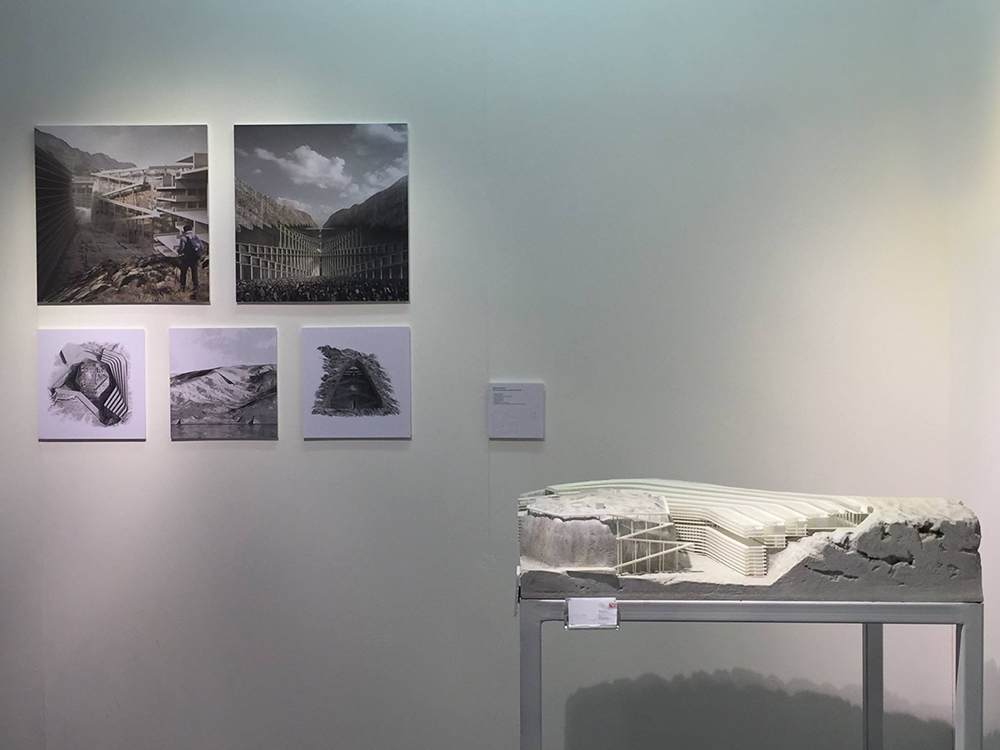Eleftherios Sergios born in Heraklion Crete, has graduated from the School of Architecture of the National Technical University of Athens. During and after his studies he worked in many architectural practices and also in collaboration with two architects they founded Triopton Architects. In 2014 he attended the postgraduate programme of MArch Urban Design of the Bartlett University College London and currently he works as an urban designer at Foster&Partners.
#1. Describe your architectural background with a few words.
I studied architectural engineering in the National Technical University of Athens where I graduated in 2011. During my studies I got involved in various academic and professional projects in order to broaden my horizons and get as much experience possible as a way to understand my position in the architectural field. After my studies I worked in many practices and participated in residential and retail interior design projects. The experience I acquired helped me understand quickly the market, its needs and how a new architect like me, at the time, could enter the competitive field of architecture in a difficult economic situation as well. Nevertheless the scale I was working on felt that it could not meet my expectations, thus I decided to apply for the postgraduate programme of MArch Urban Design in the Bartlett UCL. This master offered me architectural knowledge in a much bigger scale that I was used to, focused on subjects of geopolitics, with economic aspects and territorial sovereignty disputes since my design thesis was related to religious tourism around the Dead Sea and how it gets utilized as an architectural mechanism of expansion. As a postgraduate student I was selected for a bursary by the architectural practice Foster&Partners where I started working in the Urban Design department.
#2. After your graduation, how did you make up your mind on your next step it? What was it about?
After my undergraduate studies in NTUA I started working in architectural firms in Athens in order to discover what are the potentials of architecture as a profession in Greece and what kind of career I would like to follow. During these years I realized that the scale of the projects I was working on was limited and also restricting to my perspective. For these reasons I was really keen on following other paths for the sake of pursuing knowledge and experiencing different architectural dimensions. The next step was the postgraduate programme of Urban Design in UCL. Due to its high reputation and academic value I believed that it would offer me a place in the architectural market of United Kingdom.
#3. What were the difficulties you encountered and the opportunities that came along with your choices?
I faced many difficulties especially in the academic context since the postgraduate programme was really intense and the requirements incredibly high. However that helped me familiarize myself with the British working system and its fast pace. By the end of the masters I believe that I had enough experience to participate and even manage professional projects in the UK. The opportunities showed up in the very early stages when the school arranged a meeting with representatives from Foster&Partners who asked me to work at the office as an intern if possible. Studying and working were running in parallel, something that revealed and even highlighted the career I would like to follow.
#4. What is your current occupation and in what way is it an asset to your professional life? Is it close to what you imagined architectural practice to be?
Currently I am working in Foster&Partners at the Urban Design department as an Urban Designer. My work is related mostly to the design and master planning of new cities, big scale commercial and residential districts as well as public spaces. Constant research is required, understanding the geographic, social and economic conditions in order to form a holistic approach of the urban design proposal. Personally the path I have followed seems to be the suitable one for someone who attempts to discover architecture in every level. Therefore, my current occupation I believe is the psychical way of discovering architectural knowledge. In terms of satisfaction, it is too early to say since these are still my first professional steps. I wish that at some point in the future I will be confident and mature enough to approach the definition of architectural practice and answer if I am close to what I imagined. Right now it feels that I am in the right track and feel happy for that.
#5. What piece of advice would you give to someone that would like to follow your steps?
I believe that every step of mine had a particular meaning and purpose. The profession of an architect keeps a lot of its aspects hidden and thus needs a continuous search and struggle. So, what I would advise someone is to do always self-critic and try to define himself because through this process he will discover his architectural character. A lot of effort is needed through testing different conditions in order to find out where he belongs. Urban Design requires an architectural strategy not so common and known in Greece and for these reason we need to be consistent, patient and persistent. In any case a piece of advice that any architect would need to hear is that architecture is not a job but a vocation. Therefore you should practice it with passion, ethos and respect.




